
"I'm frustrated now that I can't go to the origin" - The current mindset of the founder who is "crazy" about coffee.
Founded in 2009 in South Korea while specialty coffee culture was still in its infancy, today Coffee Libre has four stores in Seoul and one in Shanghai, making it one of the most famous roastery and cafe in Korea. However, it has not all been smooth sailing for this coffee company. We spoke to the founder, Mr. Pil Hoon Seu (hereinafter, referred to as “Pil”), a self-proclaimed “coffee nerd.”
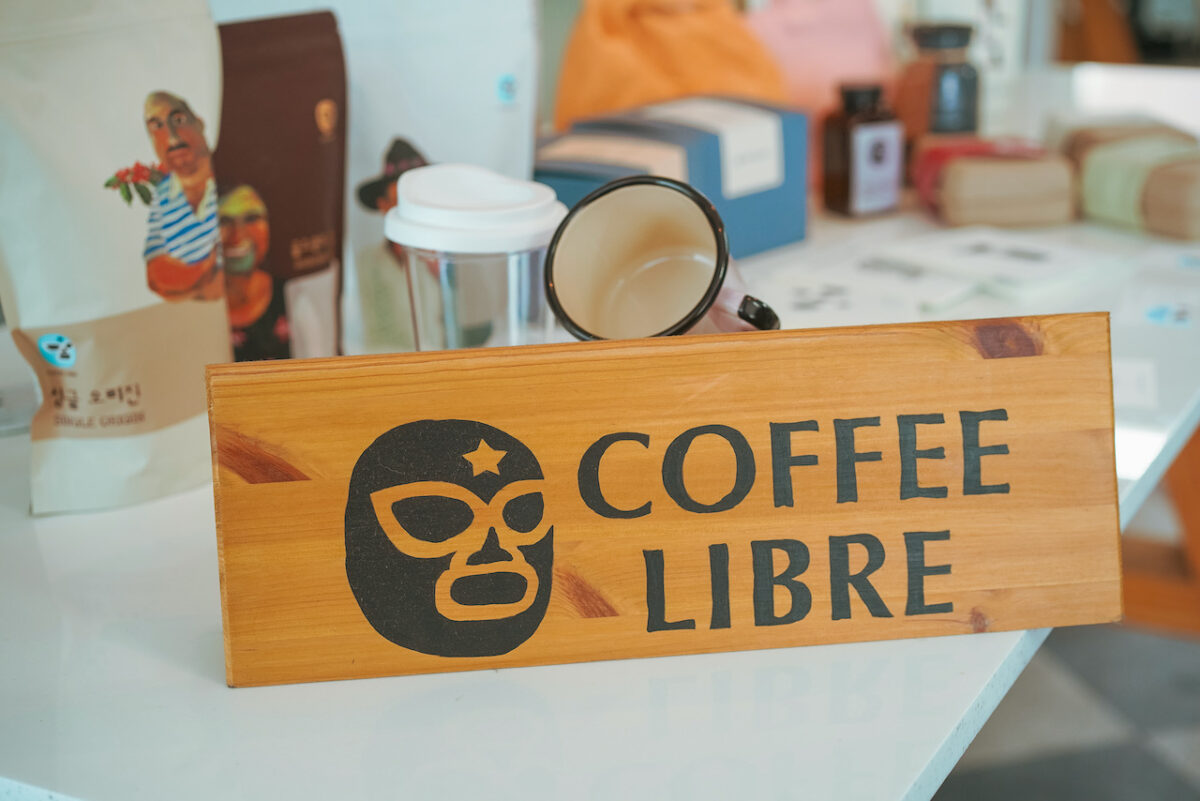
I learned that it was not a problem. It is just who I am.
When you visit a Coffee Libre shop, the first thing that catches your eye is a logo that does not quite look like one that belongs to a coffee shop. Customers are greeted by “Lucha libre” wrestling masks on signs, packaging, paintings hanging on the wall – everywhere and anywhere in the store.
“It is based on the main character of an American movie called Nacho Libre. The main character, Ignacio, works as a Catholic priest in a monastery, but is not given enough money for food, so he starts to secretly moonlight as a masked wrestler in order to earn money to feed the hungry orphans. The main character has two completely different personas during the day and night, but as a professional, he feels happy when he helps others. I was deeply moved by the fact that such a wonderful story actually happened in real life.”
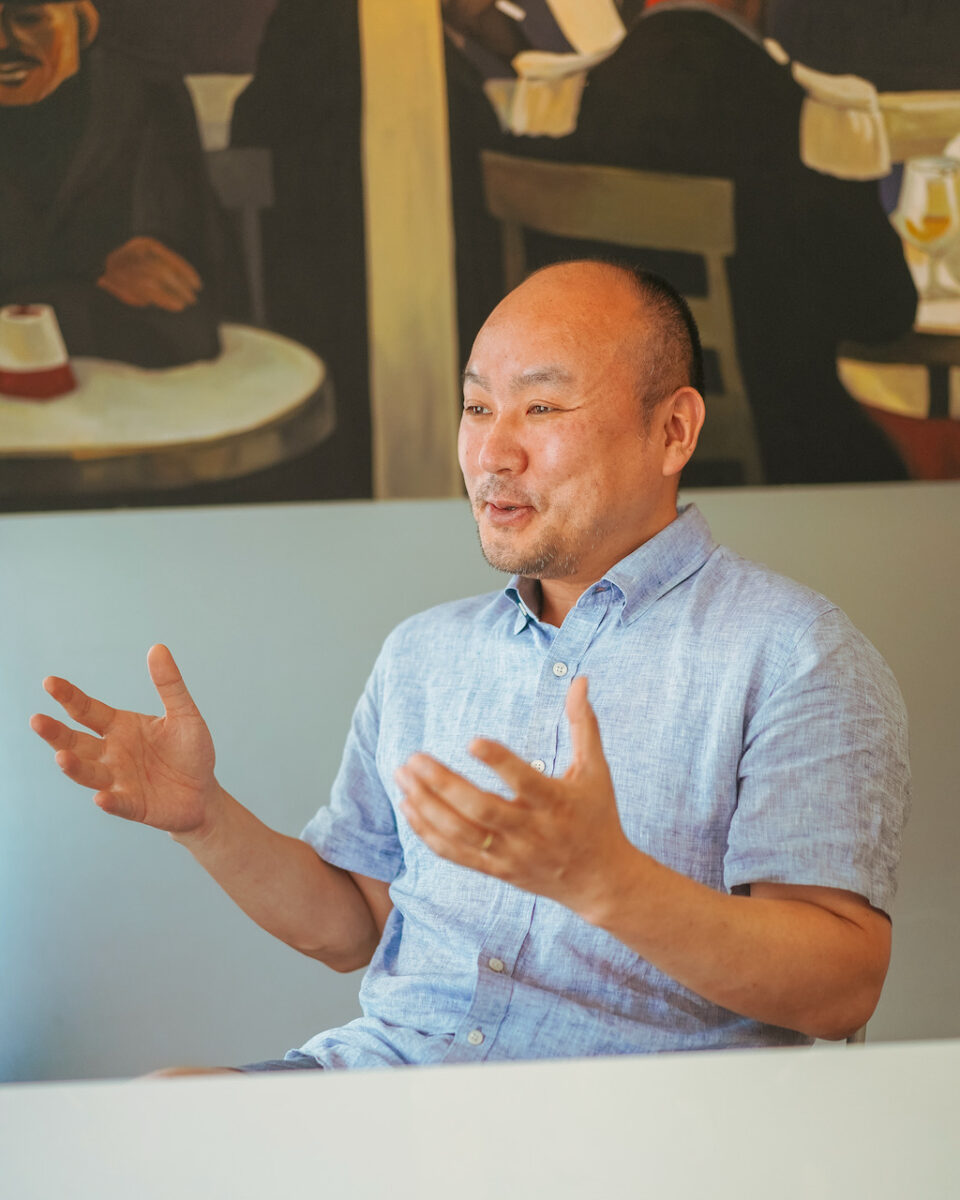
Pil, who had always had an eccentric personality since childhood and wondered if he was strange or suffered from a mental health problem, was able to relate to the main character.
“When I was a college student, a fortune teller once told me, ‘You have two sides to you.’ As a matter of fact, I am a very logical person, but I am also a very emotional person. I am simultaneously very altruistic and very selfish, very extroverted as well as very introverted, and I can be very arrogant and very humble at the same time.
As a child, Pil was a problem child who would often get in fights at school and barely escaped expulsion because of his excellent academic performance. Pil was an incorrigible child for his parents and teachers, but he was the one who didn’t know what to do with himself the most.
One day, Pil came across Hermann Hesse’s book Narcissus and Goldmund and the long-standing rift within him melted away.
“It’s about rationality and emotionality finally coming together, and after reading it, I was able to accept my extreme duality as a part of my personality and who I was. At the same time, it gave me hope that I would be able to get my personality under control in the near future.

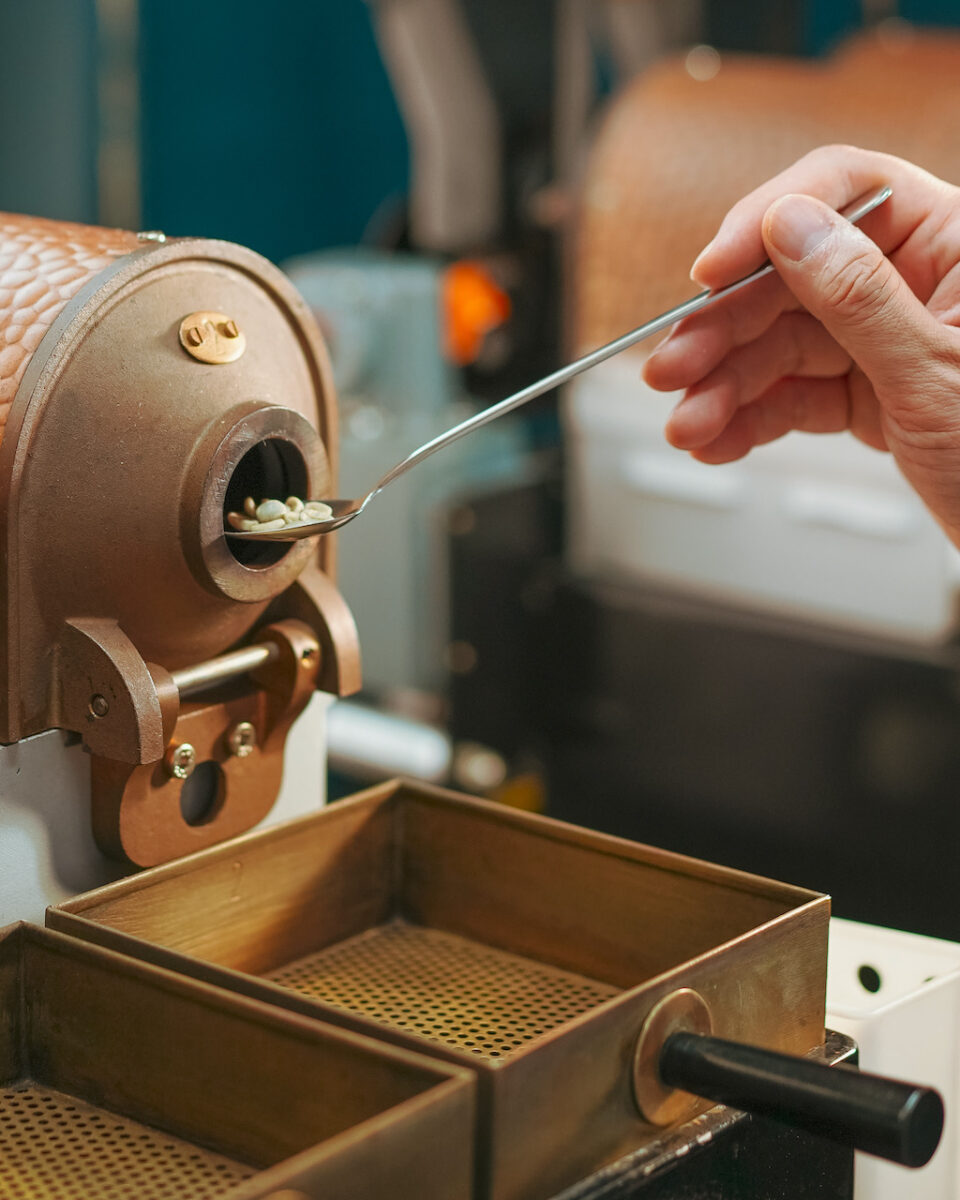
In search of the tangible real
Having a father who was a professor of philosophy, it was natural for Pil to follow in his father’s footsteps. His interest in history was particularly deep, and he majored in European history in college and graduate school. Upon graduating, he began working at a coffee shop where he had been a regular customer, and this changed his destiny.
“I liked the fact that I could work with all my senses, including my sense of smell and touch, whether I was roasting or brewing. Unlike academics, who only use their eyes and brains when reading books and writing papers, I felt that this job was ‘real’ because I could feel the many different layers of my mind and body.”
After Pil founded Coffee Libre, he spent three or four months a year in the coffee origin because it gave him the feeling of “Wow, this is real.” whenever he was there.
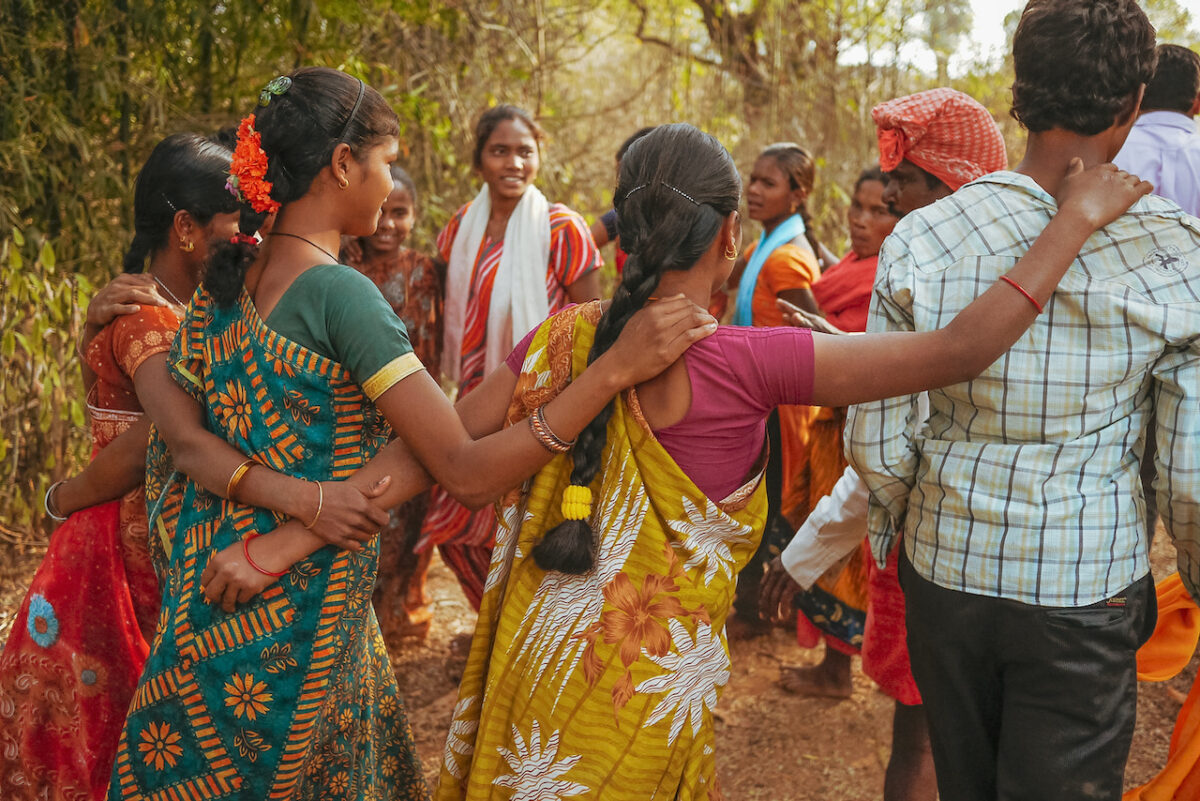
“I love the locals, the coffee, the nature and the food. That is the root of my passion. I want to tell Korean people what is happening in the coffee origin, who produced the coffee, and the philosophy of those who produce it. On the other hand, I want to tell the producers what kind of coffee the Korean people enjoy and why they like it. In short, I want to be a messenger between producers and consumers.”
The purpose of Pil’s long stays in coffee origins is not just to gain more information and experience about coffee to help his business.
“What’s more important is that I can learn more about our relationship with the local people, their way of life and our future. Living in Korea, we are constantly surrounded by useful things and do the same things day in and day out. This doesn’t really inspire new ideas or ways of thinking. On the other hand, being in coffee origins with no phone, no emails and no friends gives you a lot of free time.
I find it very meaningful to be able to think without being interrupted by anything else. It allows me to dream and think about my life in a peaceful state of mind.
In fact, I always feel that I have changed when I come back from the coffee origins. I know that I can’t change the world, but I can make myself a better person and change the staff members of my company and my partner producers for the better.”

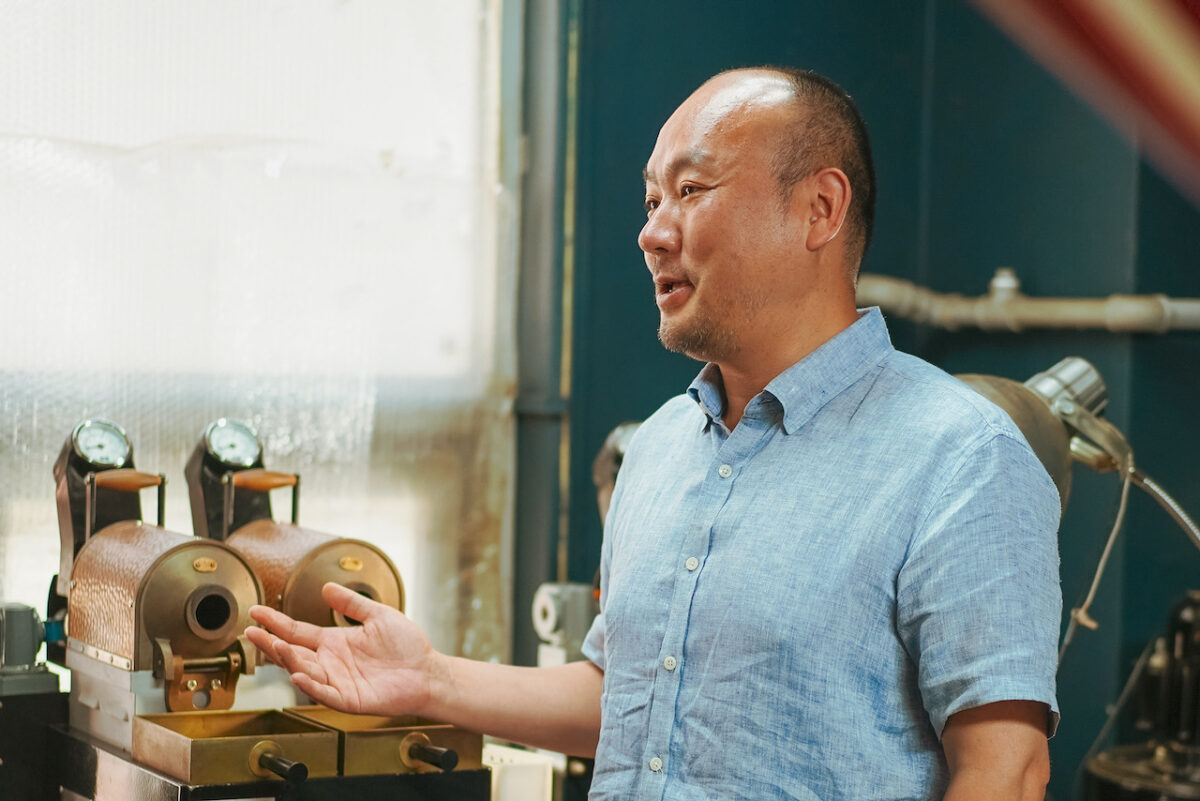
Believing is the first step
When Pil refers to the coffee producers as ‘partners’, he places great importance on maintaining long-term relationships with them.
“We try to keep buying in set quantities from our partners at all times. Since they work with nature, it is normal for production and quality to fluctuate. Deciding whether or not to buy based on the coffee quality score is nothing more than shopping.
No small-scale producer can survive if we treat them like that. Even if the quality isn’t that great, we do our best to create the right roasting profile for the beans and bring the quality up to a level that we can sell to our customers. I believe that is our duty and responsibility.”
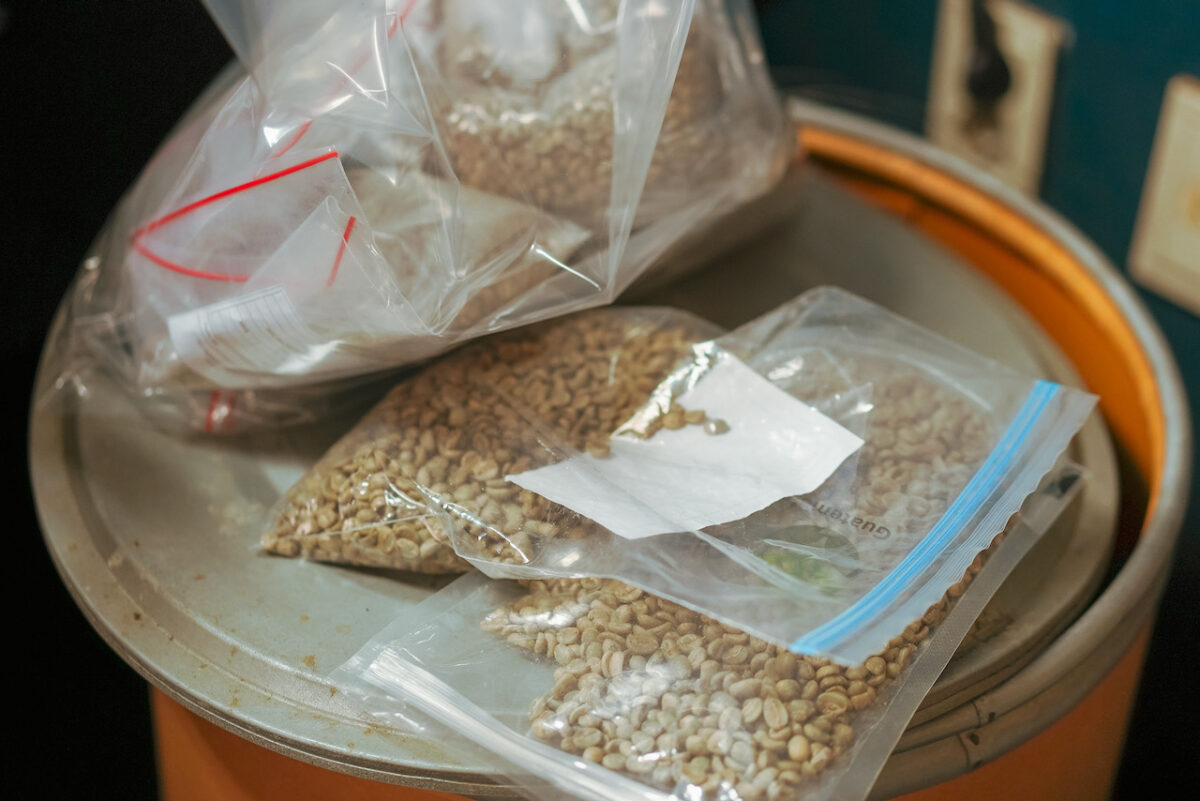
However, the reality is that sometimes you receive poor quality coffee.
“I want to buy from them again next year, so the first thing I do is ask my partners why the quality of their coffee was poor. If they are being dishonest or cutting corners, I will terminate the relationship, but in most cases the problem is due to a lack of knowledge or skill. I ask them to change the way of fermentation or to increase the drying time, and hope for improvement in the following years. If the quality is still not up to standard, we sell the coffee at a lower price to a commercial coffee company.
In any case, the important thing is to believe in your partners. If you see a change or improvement, you continue doing business with them, and if you do not, then you stop. If you don’t trust your partners, it’s not going to end well for anyone.
I feel great joy when I see my partners’ standard of living getting better because of our relationship and when we both feel that we are growing together. My desire to support them is my driving force. Everyone involved in the coffee supply chain should be happy, and I hope they will be.”

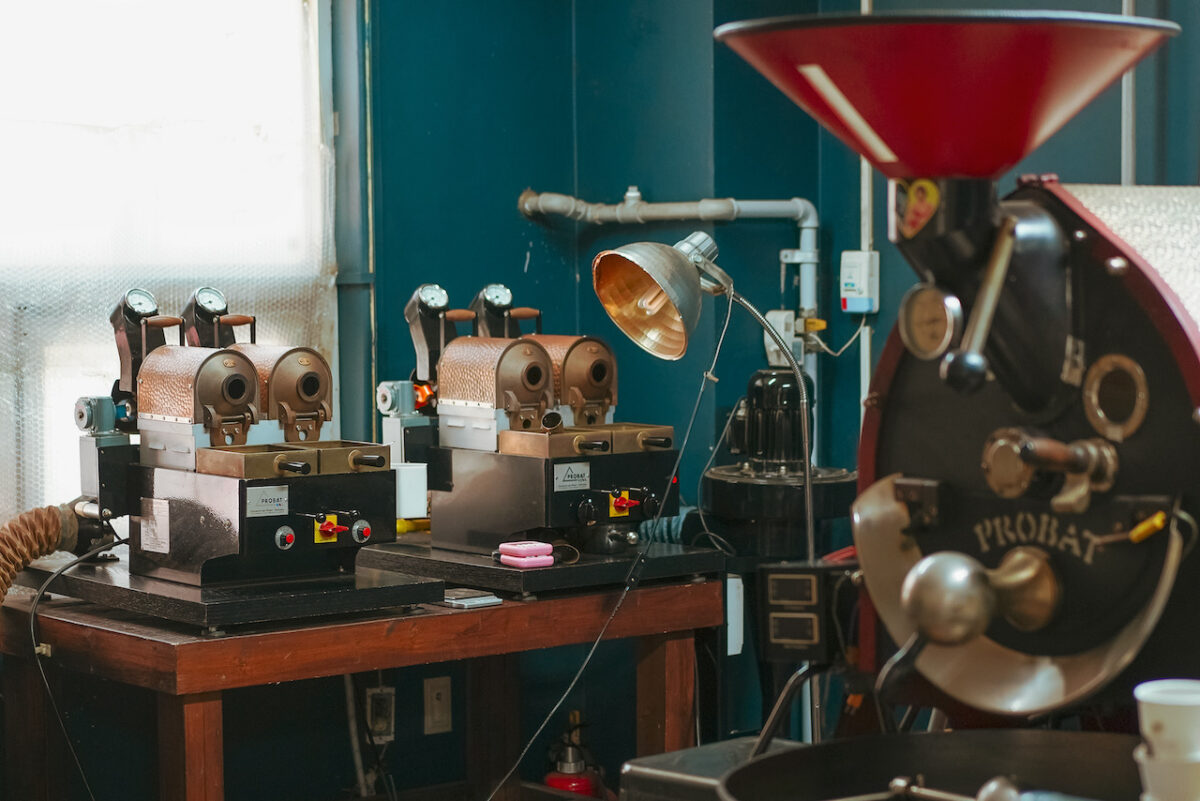
Bringing specialty coffee culture to coffee producing countries
It was in 2017 that Pil opened his own roastery, jointly owned with his partner producers in Guatemala. The reason he chose to pursue this project was due to his awareness of the problems surrounding the specialty coffee industry.
“Specialty coffee is becoming more and more popular in the countries where it is consumed, and only a handful of coffee growers are profiting from it. Those who are involved in specialty coffee in America and Europe often use words and phrases such as, ‘relationship,’ ‘friendship,’ ‘sustainability,’ but some of them sound exaggerated and insincere to me.
The reality is that the ordinary person living in these countries where coffee is produced do not have the opportunity to enjoy specialty coffee as a drink. They don’t have the shops to serve it, they don’t have the proper skills to roast or brew it, and they don’t have the suitable coffee machines. The reason for this is simple:all the good quality coffee is exported, and no one wants to invest in an unprofitable specialty coffee business.

Knowing this reality, Pil couldn’t help but take action. He wants to share the culture of specialty coffee with the locals. He wants to tell them that this delicious coffee is produced in their country, and they make the best coffee in the world. On top of that he wants them to be proud of their coffee. These thoughts became the driving force behind the opening of his own roastery in Guatemala.
The shop used to hold free coffee tasting events every week (Until the coronavirus outbreak) to promote the culture of specialty coffee and to spread understanding and knowledge. The shop was bustling every day with many coffee growers, baristas and buyers.
“Nowadays, many Guatemalans love our coffee shops and our coffee. Although our company didn’t make any profit from this investment, we achieved our goal of helping the local people remember that the specialty coffee culture in Guatemala developed with Coffee Libre. In that sense, I think the project was a success. Earlier this year, I transferred my 50% stake in the company to a Guatemalan partner. Even now, I am supporting and cheering for this project.”

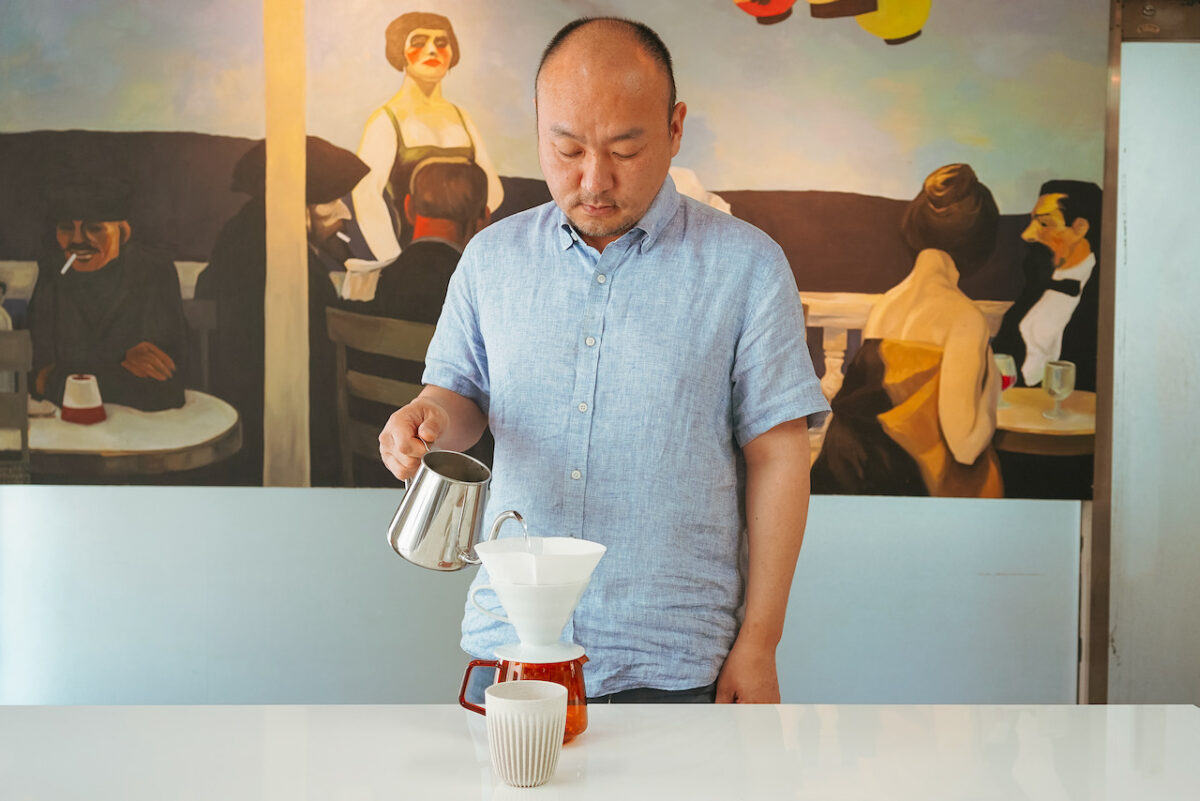
Only god knows what the future holds.
Coffee Libre is now one of the most successful specialty coffee company in Korea, but for the first few years after Coffee Libre was founded in 2009, it was barely surviving. There were a lot of struggles after they finally opened their first store back in 2012. For years, they have been offering free coffee tastings almost every day to show people why specialty coffee is more expensive than other coffees and why it is so exceptional.
“In the beginning, I was worried about my financial situation because I couldn’t even make the minimum amount of money to run the business, but the most difficult part was thinking that I might have chosen the wrong path and that specialty coffee might never be successful in Korea. I spent my days telling myself to wait a little longer, to let my love and passion for coffee sustain me, and then one day specialty coffee became a fad, and I started to see all the possibilities.”
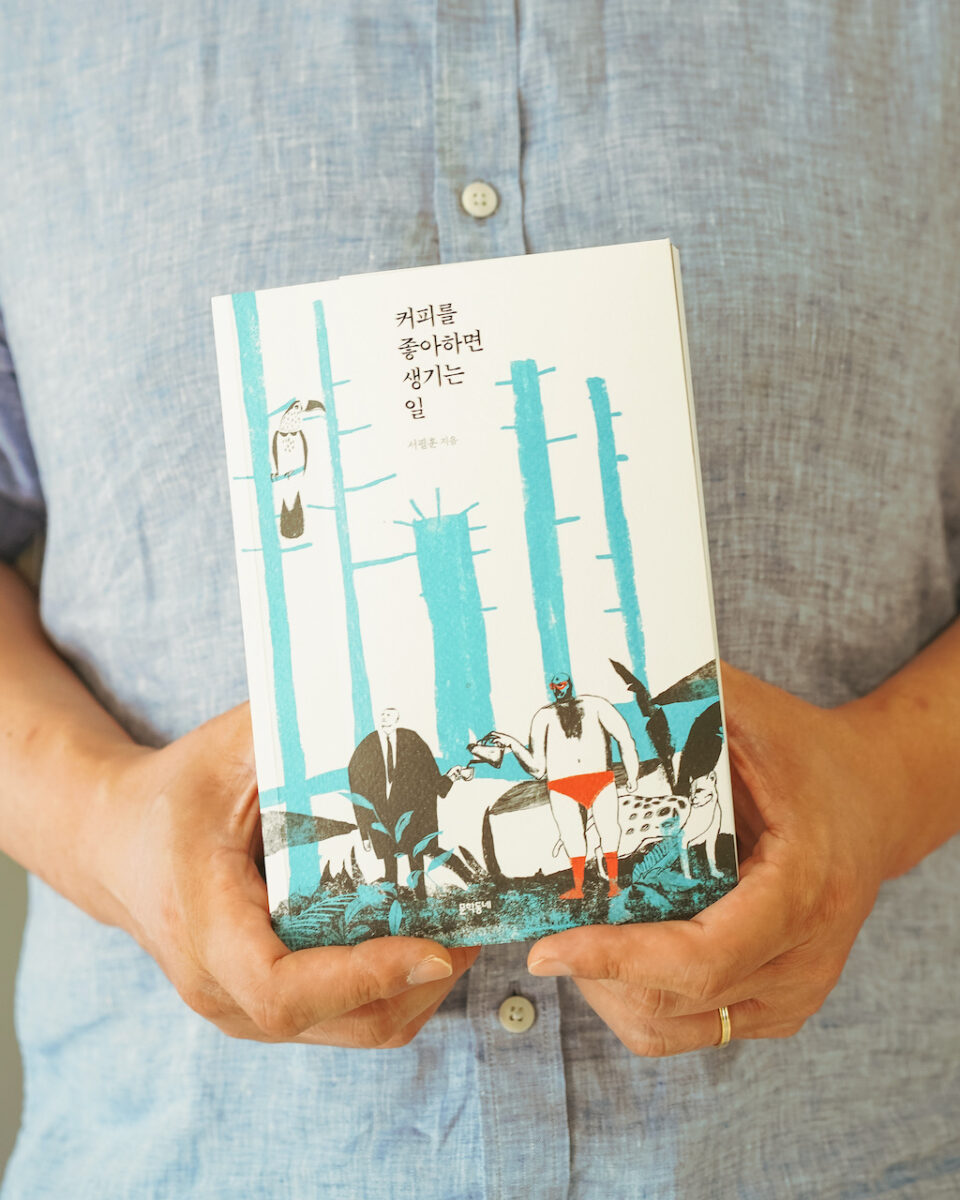
Nevertheless, Pil has never received any financial help from his parents or investors. Although he didn’t have too much breathing room in his finances, he has bought a coffee farm and opened a coffee shop in Guatemala. The company also continues to donate money for 400 schoolgirls in India, where many of the children of coffee farmers live, and provides as many benefits as possible for its own staff, including paying them above average wages and benefits, including medical check-ups and $2,500 plus two weeks of paid vacation to all employees every two years. The company has also published a number of books on coffee and translated over 500 academic articles on the subject of coffee, which are available free of charge on its website.
“A lot of people would have seen me as a crazy or idealistic or stupid entrepreneur because we do business in a way that they don’t think can be profitable. I know that our way of doing things is risky and not the best way if you want to grow fast as a company, but it’s what I’m good at and it’s what I enjoy doing.”
Putting the interests of others around him before his own, Pil’s way of life might appear to others to be dedicated and self-sacrificing.
“For me, it’s more accurate to say that I’m enjoying life to the fullest, rather than working hard. My coffee friends often joke that I’m dying because I can’t go to the origin at the moment (due to the coronavirus) (laughs). I don’t want to spend my short life on things I’m not passionate about. So if I lose my passion for coffee, I’ll always try something new and risky again.”
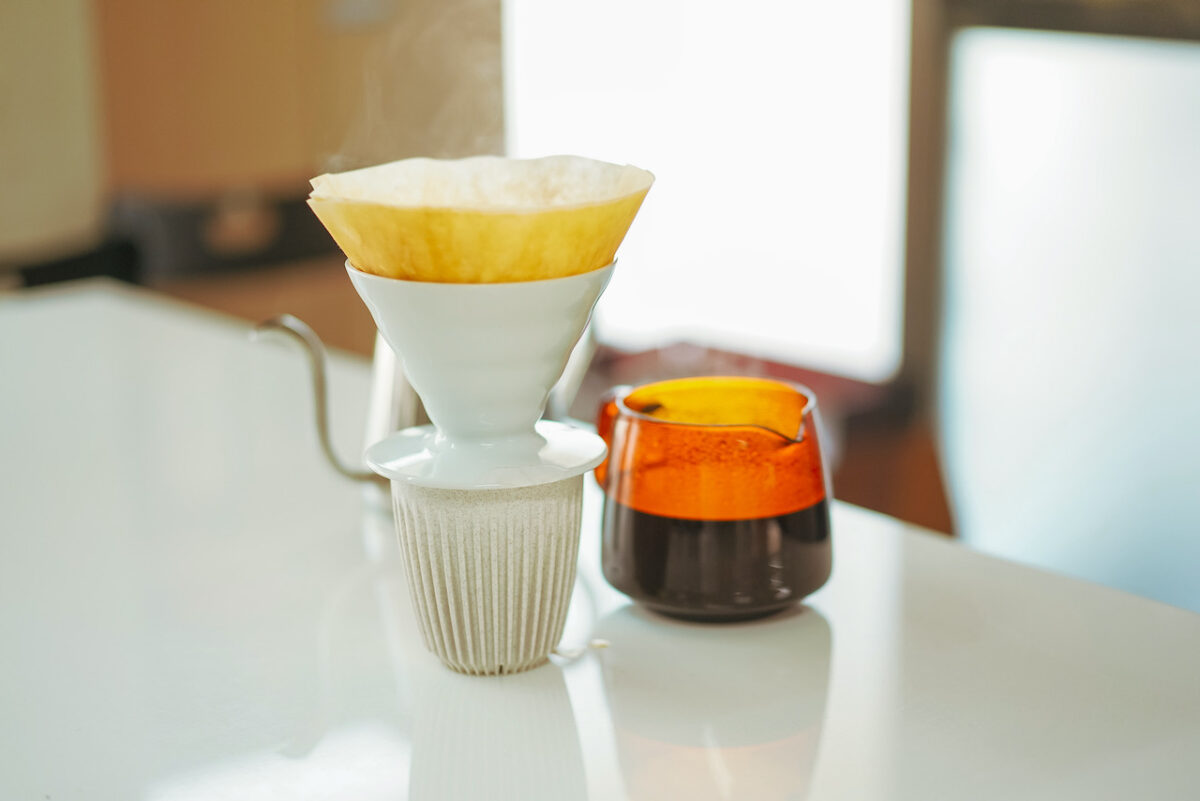
The word ‘Libre’, which he uses in the shop’s name, is the Spanish word for free. Perhaps it’s a sense of complete freedom that Pil, who once struggled with being too extreme and outside the box, was looking for.
“I don’t like to set goals or make plans, so I don’t even have a plan for next year at work. I just enjoy every day, do my best and only God knows what the future holds. That’s why I need something in my life that I can be passionate about. If I hadn’t found coffee, there’s a good chance I would’ve become a criminal.”
With so many problems to solve, the coffee industry may be the perfect setting for Pil, who lives life on the edge. The roasting and brewing of coffee uses all his senses and he cannot overlook the reality that the origins face. What’s important to him is his close relationships with the producers of his coffee. The overwhelming sense of reality that can only be experienced in the world of coffee drives Pil crazy in all the best ways.
written originally in Japanese by Tatsuya Nakamichi.
MY FAVORITE COFFEE人生を豊かにする「私の一杯」
“I am happiest when I drink the coffee that is produced by my partners and I feel that their standard of living as well as the quality of their coffee have improved.”

Café Libre
Café Libre
Café Libre
Café Libre
Family Bonds Café
- [営業時間]
- Mon-Web 7:30 - 21:00 / Thu: 7:30-22:00 / Fri: 7:30-23:00 / Sat: 8:00-23:00 / Sunday: 8:00-21:00